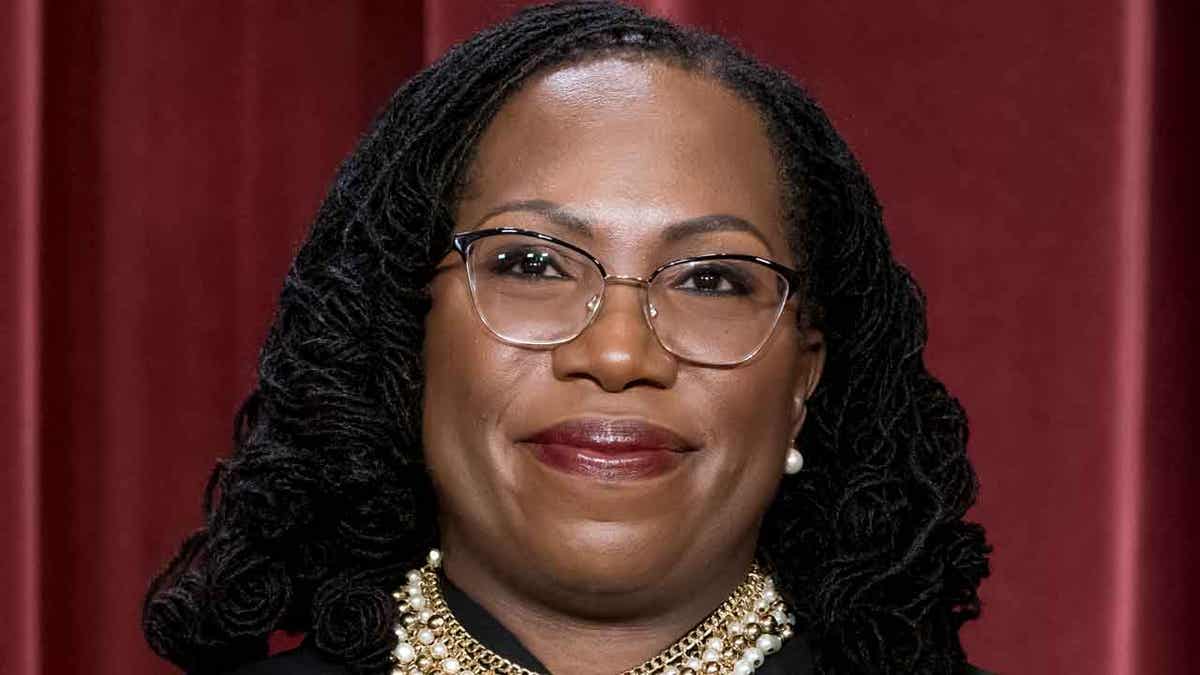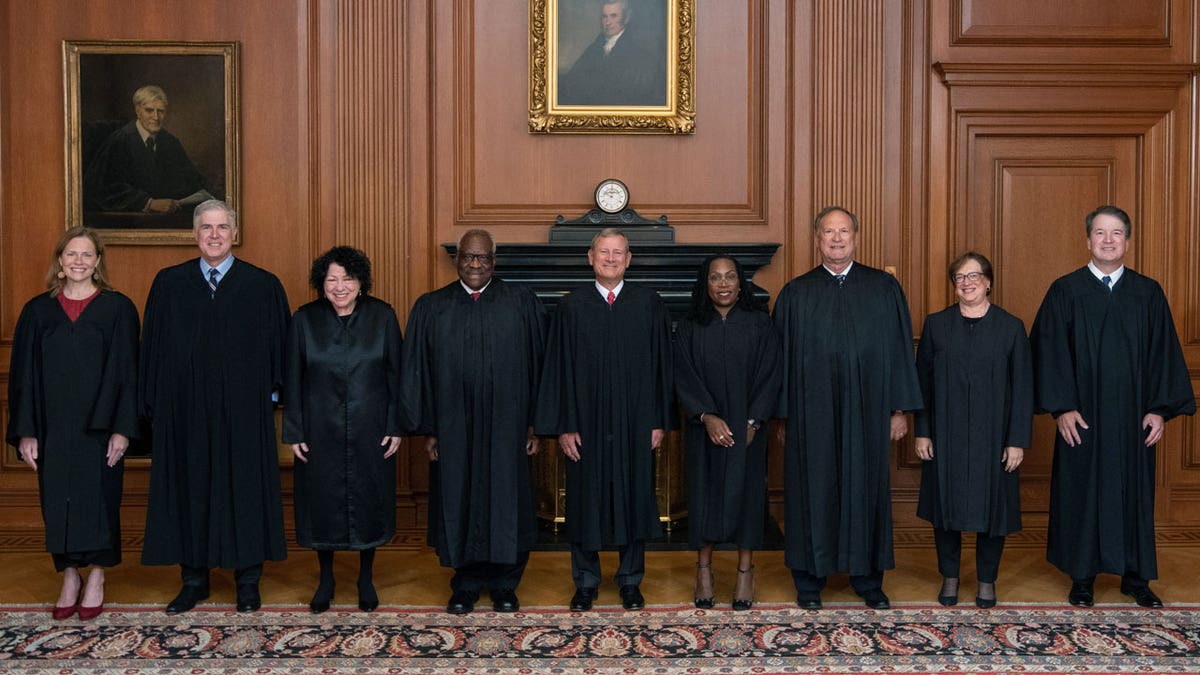Shannon Bream breaks down the Supreme Court's ruling on affirmative action
Fox News chief legal correspondent Shannon Bream has more on the Supreme Court's ruling to end race-based college admissions on 'Special Report.'
Supreme Court Justice Ketanji Brown Jackson made a "mathematically absurd claim" about Black newborns in her dissenting opinion in the affirmative action decision, attorney Ted Frank wrote in a Wednesday Wall Street Journal op-ed.
Jackson argued in her dissent that diversity "saves lives" and that it was essential for "marginalized communities."
"It saves lives. For marginalized communities in North Carolina, it is critically important that UNC and other area institutions produce highly educated professionals of color. Research shows that Black physicians are more likely to accurately assess Black patients’ pain tolerance and treat them accordingly (including, for example, prescribing them appropriate amounts of pain medication). For high-risk Black newborns, having a Black physician more than doubles the likelihood that the baby will live, and not die," she wrote.
Frank responded to the argument in his Journal opinion piece: "A moment’s thought should be enough to realize that this claim is wildly implausible. Imagine if 40% of black newborns died—thousands of dead infants every week. But even so, that’s a 60% survival rate, which is mathematically impossible to double. And the actual survival rate is over 99%."

Justice Ketanji Brown Jackson argued in her dissenting opinion to the Supreme Court's affirmative action ruling that promoting diversity "saves lives." (AP Photo/J. Scott Applewhite, File )
Frank, a senior attorney at Hamilton Lincoln Law Institute, filed an amicus brief in support of the petitioners in SFFA v. Harvard, according to the WSJ.
"How could Justice Jackson make such an innumerate mistake?" he wrote.
Frank wrote that Jackson's claim came from a 2020 study, according to a footnote in the dissent, but added that the study didn't match Jackson's claim.
"The study makes no such claims. It examines mortality rates in Florida newborns between 1992 and 2015 and shows a 0.13% to 0.2% improvement in survival rates for black newborns with black pediatricians (though no statistically significant improvement for black obstetricians)," he said.

The Supreme Court struck down affirmative action in a landmark 6-3 ruling on June 29. (Collection of the Supreme Court of the United States via Getty Images)
KETANJI BROWN JACKSON CLASHES WITH ANTI-AFFIRMATIVE ACTION LAWYER DURING SUPREME COURT ARGUMENTS
The Supreme Court rejected the use of race as a factor in college admissions at the end of June, citing a violation of the 14th amendment.
In a 6-3 decision, Chief Justice John Roberts wrote in the majority opinion that, "A benefit to a student who overcame racial discrimination, for example, must be tied to that student’s courage and determination."

President Biden nominated Jackson to the high court in 2022 and the first Black female Supreme Court Justice began her first term last October. (AP Photo/Andrew Harnik)
Frank said the study cited in Jackson's dissent was "flawed."
CLICK HERE TO GET THE FOX NEWS APP
"So we have a Supreme Court justice parroting a mathematically absurd claim coming from an interested party’s mischaracterization of a flawed study. Her opinion then urges ‘all of us’ to 'do what evidence and experts tell us is required to level the playing field and march forward together.' Instead we should watch where we’re going," Frank continued.









































